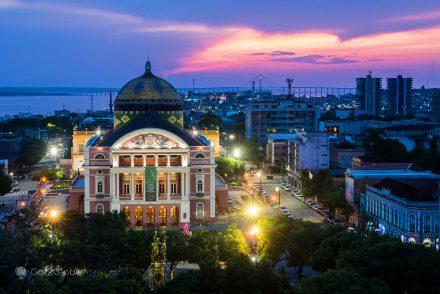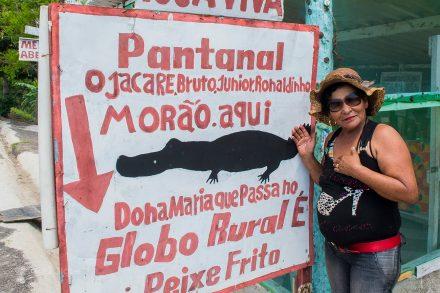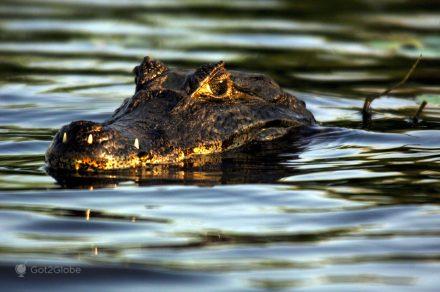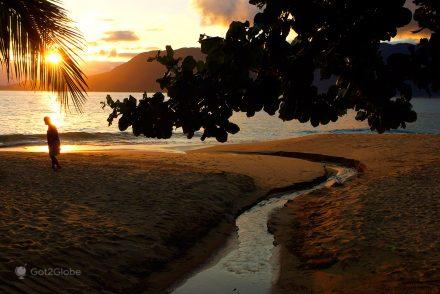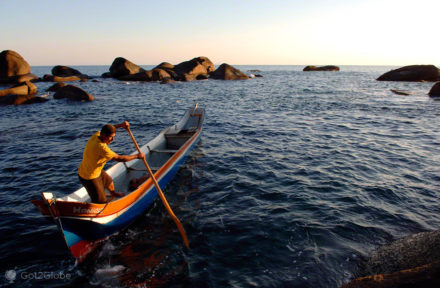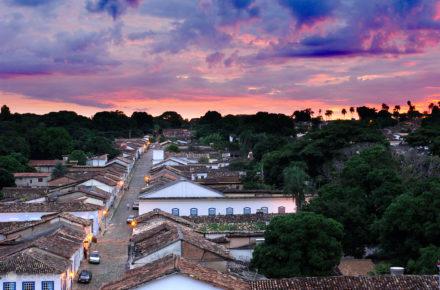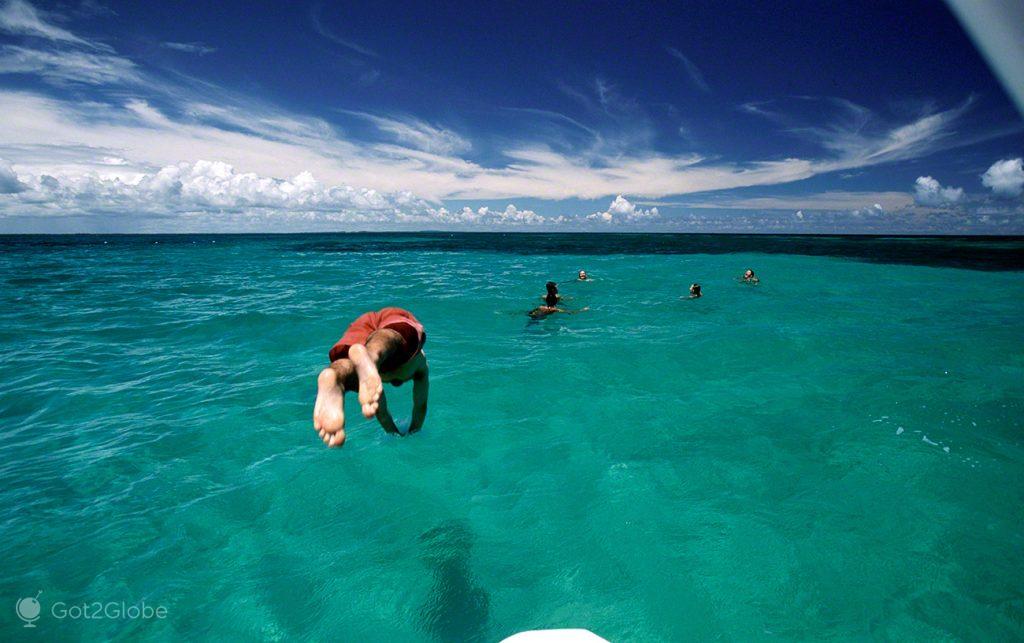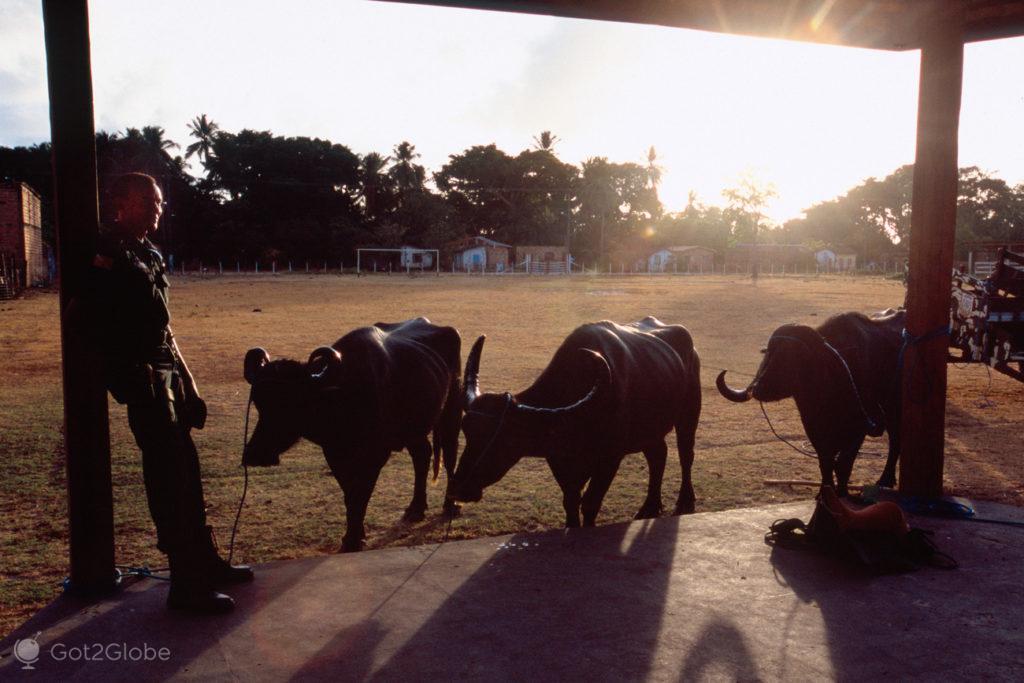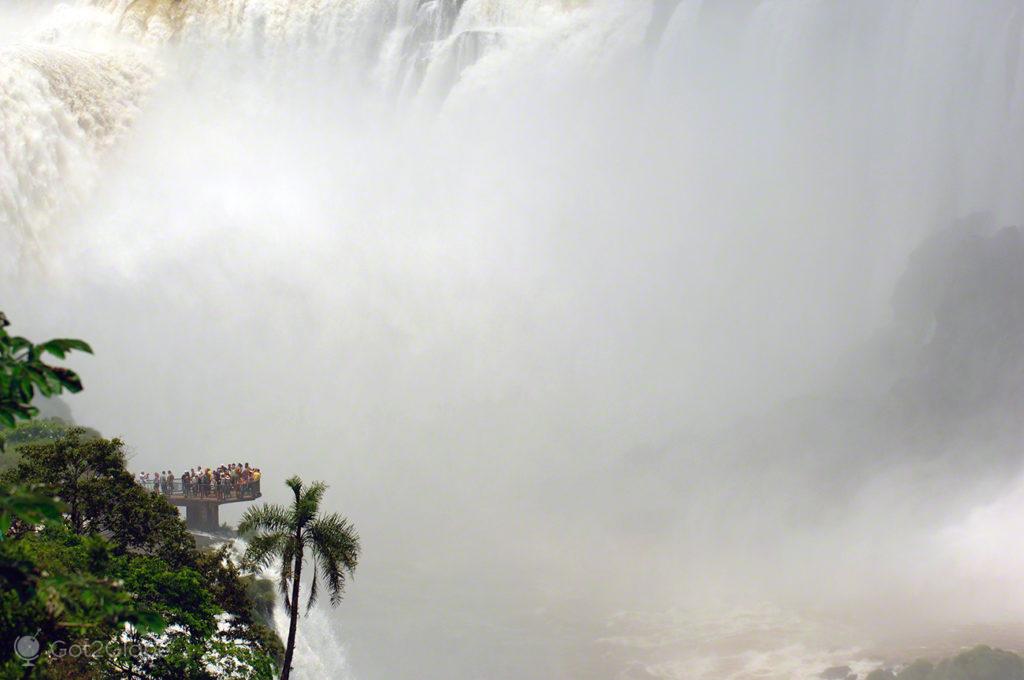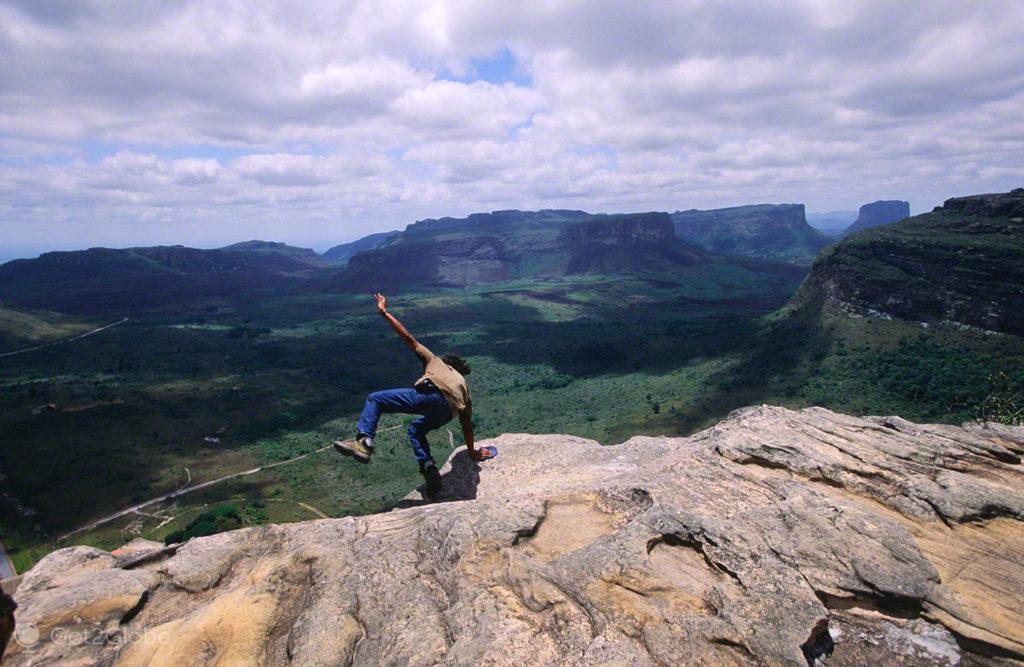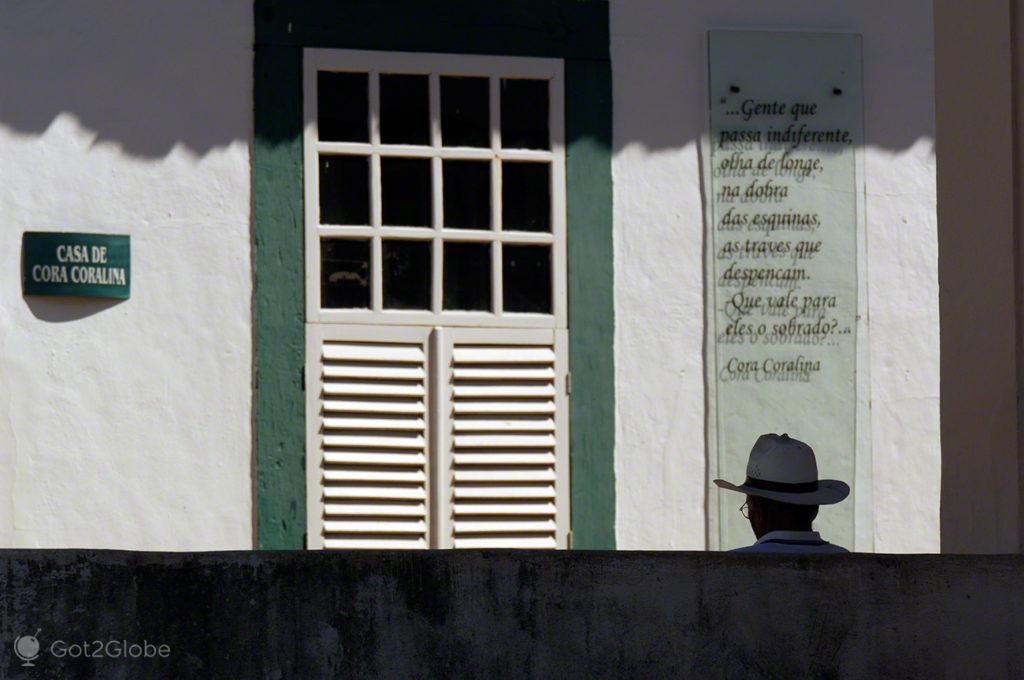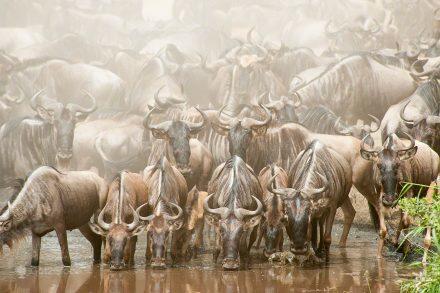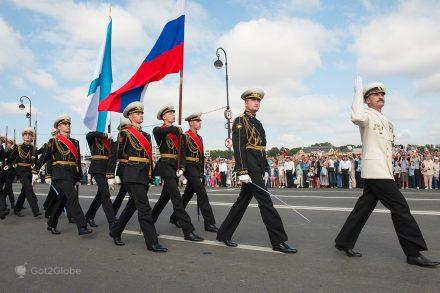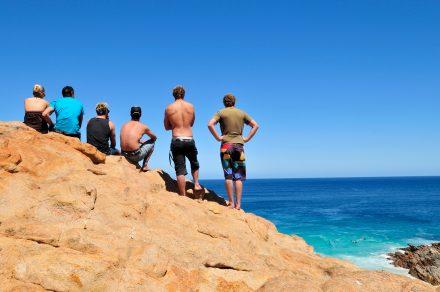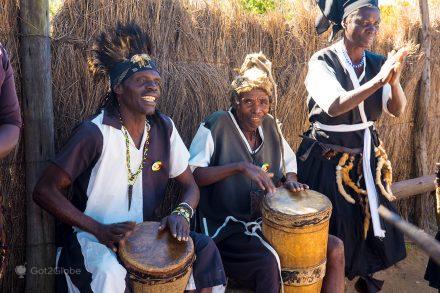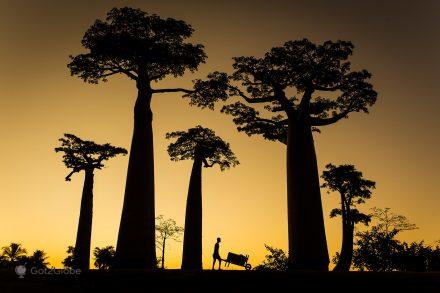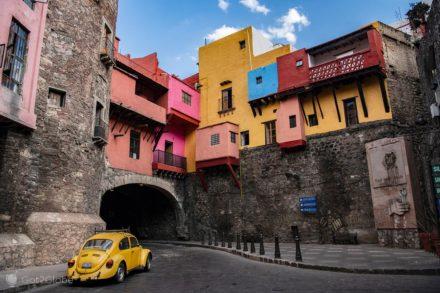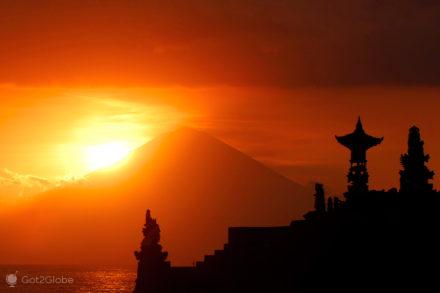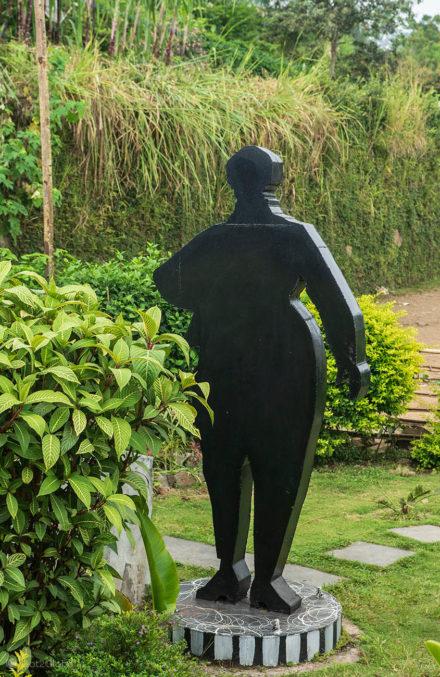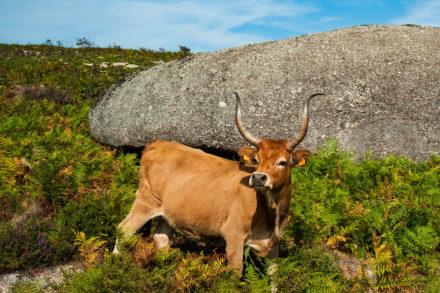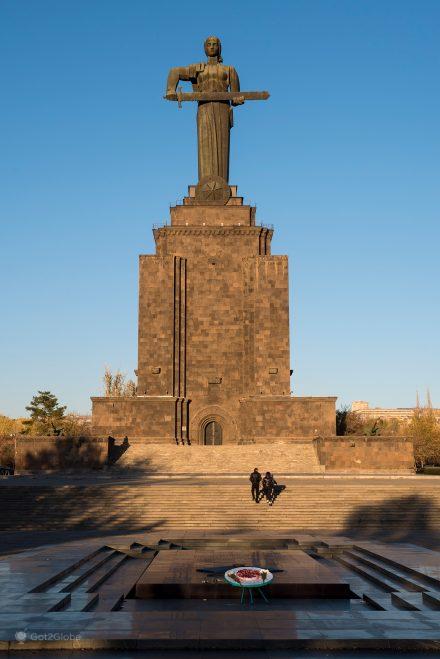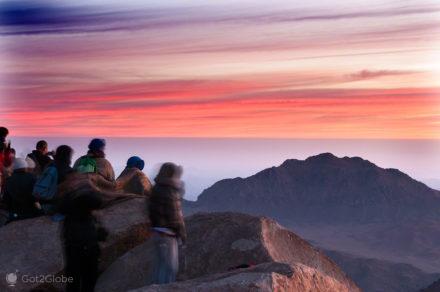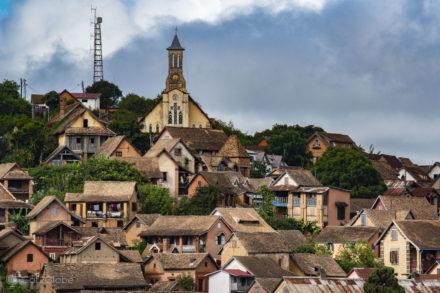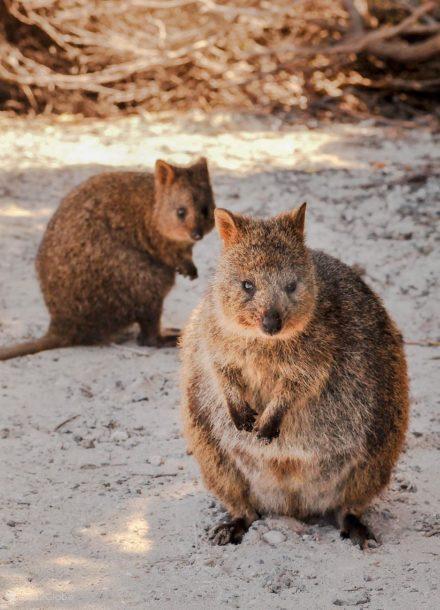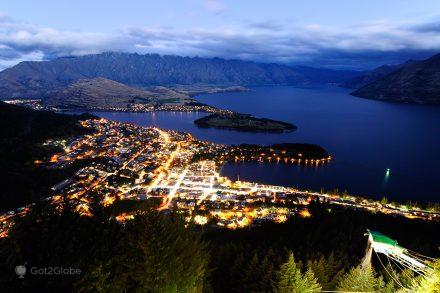The trip from Campo Grande to the heart of the Pantanal of Mato Grosso had already taken three and a half hours, including two stops at peculiar service stations in the middle of nowhere.
We had left the big city at an early age, even so, surrendered to the fact that we had not escaped the force that those interior parts, already almost Bolivian, had become. Brazil, when the sun soared to its tropical zenith.
An Unexpected Visit to Maria dos Jacarés
Less than 20km to the final destination. The driver Mr. Carlos announces to us an unexpected reason for interest. "Look, we're getting closer to the Maria of Alligators on Globo Rural, do you want to stop?”
The reference sounds as enigmatic as it is enticing. Even though we were downcast and aware of the Dantesque weather abroad, we accepted the challenge. Carlos stops the car in front of a business-house perched on the side of the road, on the imminence of a bridge over one of the countless meanders of the Corixo Mutum river.
Go out on your own, as an emissary. Return with good news. “She wasn't counting but since you are journalists, she says it's all great. Let's go talk to her!”.
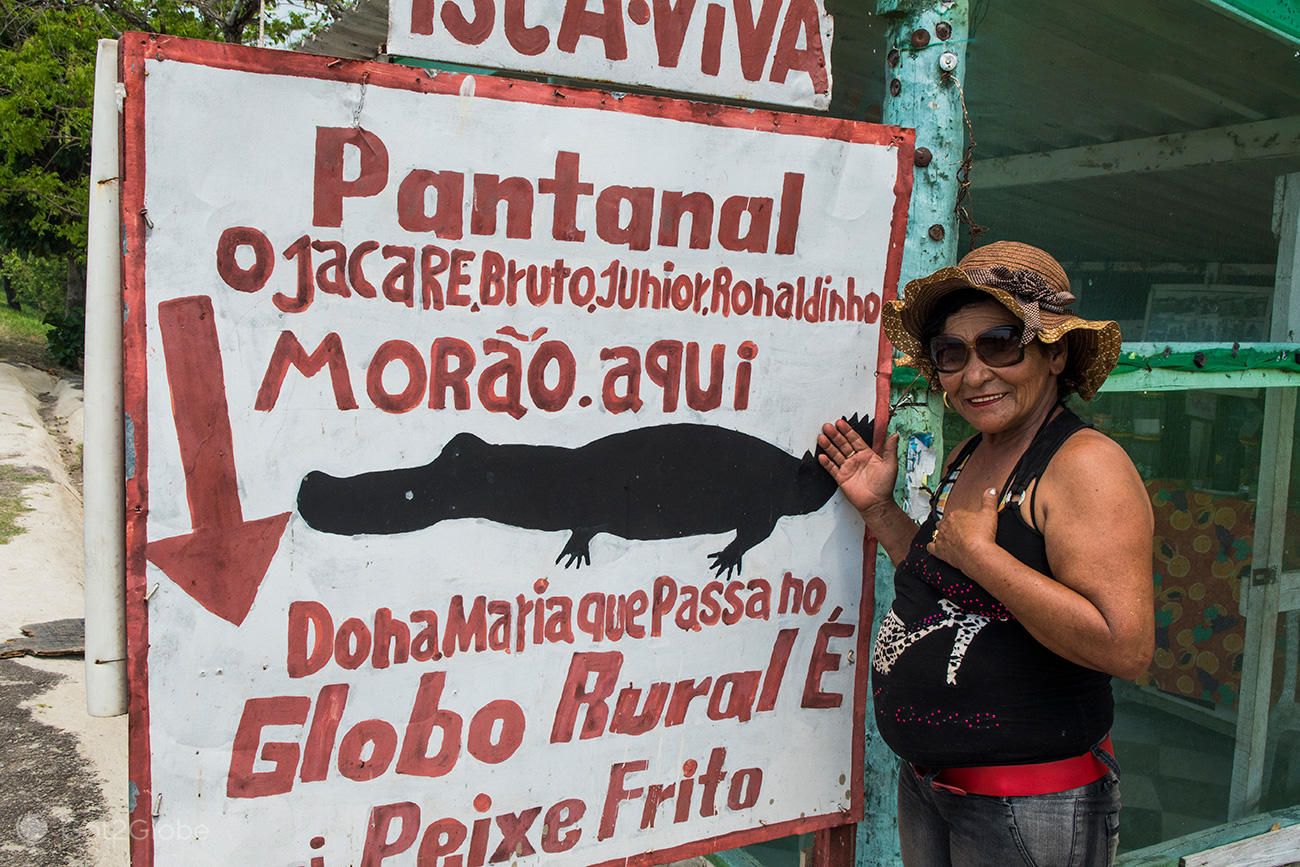
Maria dos Jacarés, next to her establishment and the sign that signals the presence of the alligators she adopted.
We entered the bar, which was built with mere planks, a sheet shed and wrapped in a thin green net that kept it airy and protected from the melgas and mosquitoes that were so abundant there.
Inside, a man in his fifties with Indian features slumbers on a table. A lady of suitable age appears from the back of the establishment and introduces herself. "Good afternoon, Maria of Alligators, be welcome. you want to meet my minis, huh ?"
We continued to hear her on the back riverside where she had appeared. An almost monologue that, as it unfolded, became as surreal as everything around it.
It occurs to Maria, or rather Eurides Fátima de Barros – her real name – that we will eventually have political influence.
Appeal to Brazilian Politicians and the Call of Alligators
The hope that we can improve her life makes her vent. “Things are not so easy around here, even appearing there on Globo Rural and on other TVs and all that, the senator who promised he would legalize my business hasn't done anything yet. Now they say they're going to throw me out.
The other guy down there has already arrived who wanted to take my place by force…you guys help me, ok? I just want to stay here. Take care of my kids!"
The mention of infants was repeated persistently. No one had yet told us what the lady was referring to for sure, but her title left no room for doubt. Arriving at the flat, grassy edge of Corixo Mutum, Maria finally introduces us to her children.
“Fat, come here! Bruto, Filipão, Ronaldinho, Dunga, Pelezão! Come to Mom!" Dª Maria advances towards the river. Sounds a horn, a horn horn used in Brazil by the cowboys. During a short hiatus, nothing happens. Suddenly, a large black alligator emerges from the river.
He walks slowly towards us. Maria knocks two stones together and rattles a tree branch. Several alligators follow the pioneer. They install themselves on the lawn, in anticipation, in the company of a flock of vultures that had detected the action of the skies and were sensing a feast.
Maria addresses tender words to some of her favorite reptiles. Secure them with pieces of meat. More to Gordo than the rest, almost all with the names of Brazilian football players or coaches.
So, choose a more prominent specimen, to demonstrate your ease among the animals. Take a paw and lift it.
She lies down on him, all accompanied by whispers and related displays of affection. “Sorry about my little ones. There was a time when people came here and killed them. So I decided to settle in and take care of it. Now everyone can like and see them. You also help me protect them, right?”
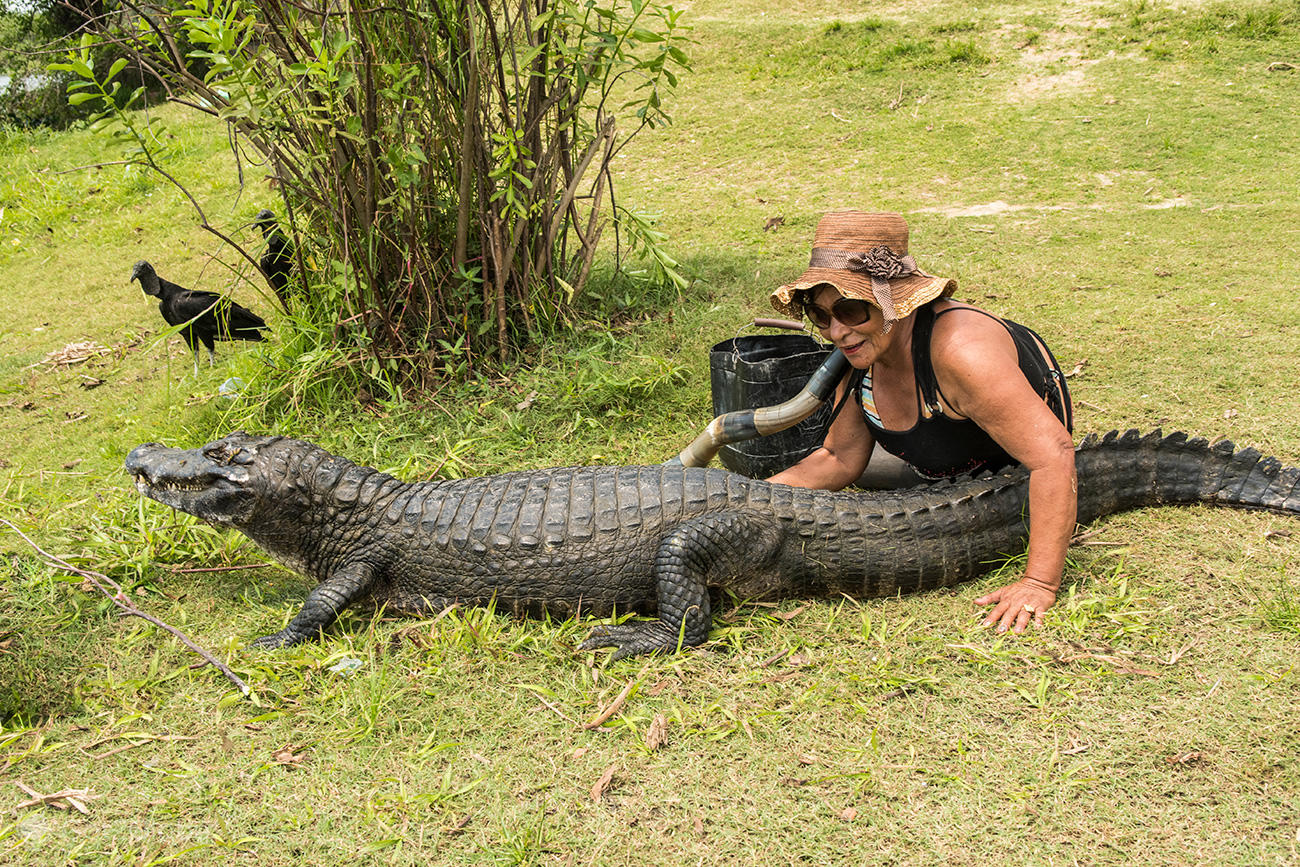
Maria dos Jacarés displays her at ease with one of her "mini" reptiles
The hostess's ease and the notion that they were alligators and not Nile crocodiles had made them reckless. When we noticed her, we were walking among the animals and leaning over to better photograph and film them.
This text is proof that we survive to tell.
Towards Passo do Otter
Maria said goodbye to the alligators. We followed her back to the bar and said goodbye with the hope that the Campo Grande politicians would grant her the best of luck. We got into the car, crossed the Corixo Mutum and completed the 17km that we needed.
Fueled by intense torrents and by some of the highest water tables on the planet's face, several rivers wind along these sides, in different directions, between more or less large islands on Earth that, as soon as the rainy season sets in, diminishes visibly.
Over time, the dynamics of drought and flooding in meteorology has remained regular and controllable by communities that insist on colonizing the immense Pantanal.
Cattle ranches abound, some with properties as far as the eye can see, others restrained, more comparable to small farms (small farms). At spaces, the banks of rivers and main roads also welcome communities in their fishing origins.
There, businesses are set up that serve the farms, the cattle raisers, the fishermen and the people who lead their lives with them. The Passo do Lontra that we have reached in the meantime is one of many.
It appeared as a simple “landing” ranch used by cattlemen who crossed the region, 110km northwest of the city of Miranda and almost the same distance from Corumbá, on the imminence of the eastern Bolivian threshold.
When the wonders of the Pantanal began to travel around the world, its enterprising people adapted to the opportunities brought by foreign tourists.
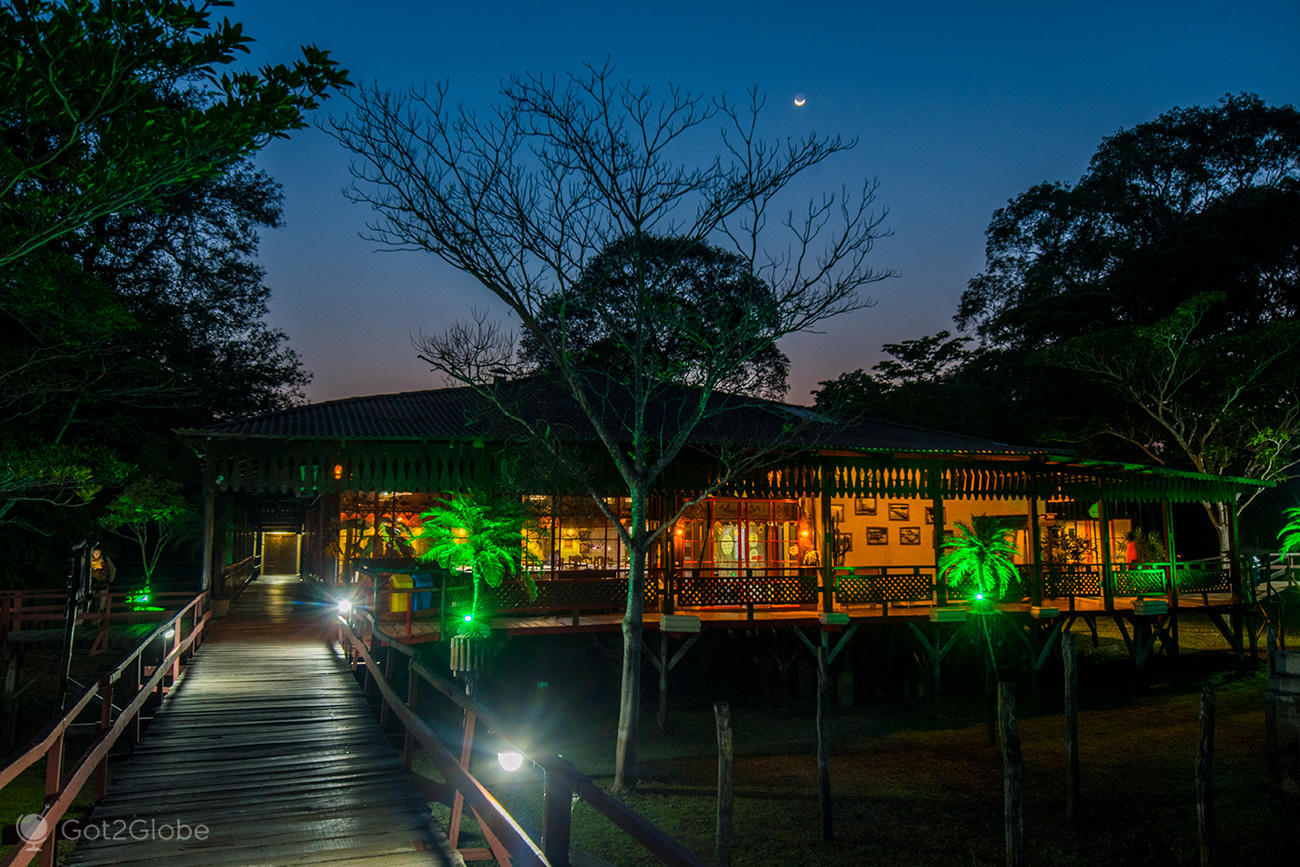
Dusk surrounds the operational heart of Passo do Lontra farm
A farm on the banks of the Miranda river
Installed in 1979 by João and Marilene Venturini, Passo do Lontra farm was one of those that earlier dedicated itself to receiving and entertaining Brazilian and foreign fishing enthusiasts and ecotourists who began to flock there.
It is as part of the second group that we enter your property, in high fishing season, not so much ecotourism. The maximum temperatures insisted on passing 40º. Not all travelers were willing to endure such an ordeal.
Mr. Carlos stops the car in the parking lot, facing a wooden walkway with such long rails that we can barely make out the end.
The walkway leads to the surroundings of the river Miranda. It branches to another parallel to the river that takes us to the main stilt buildings on the farm.
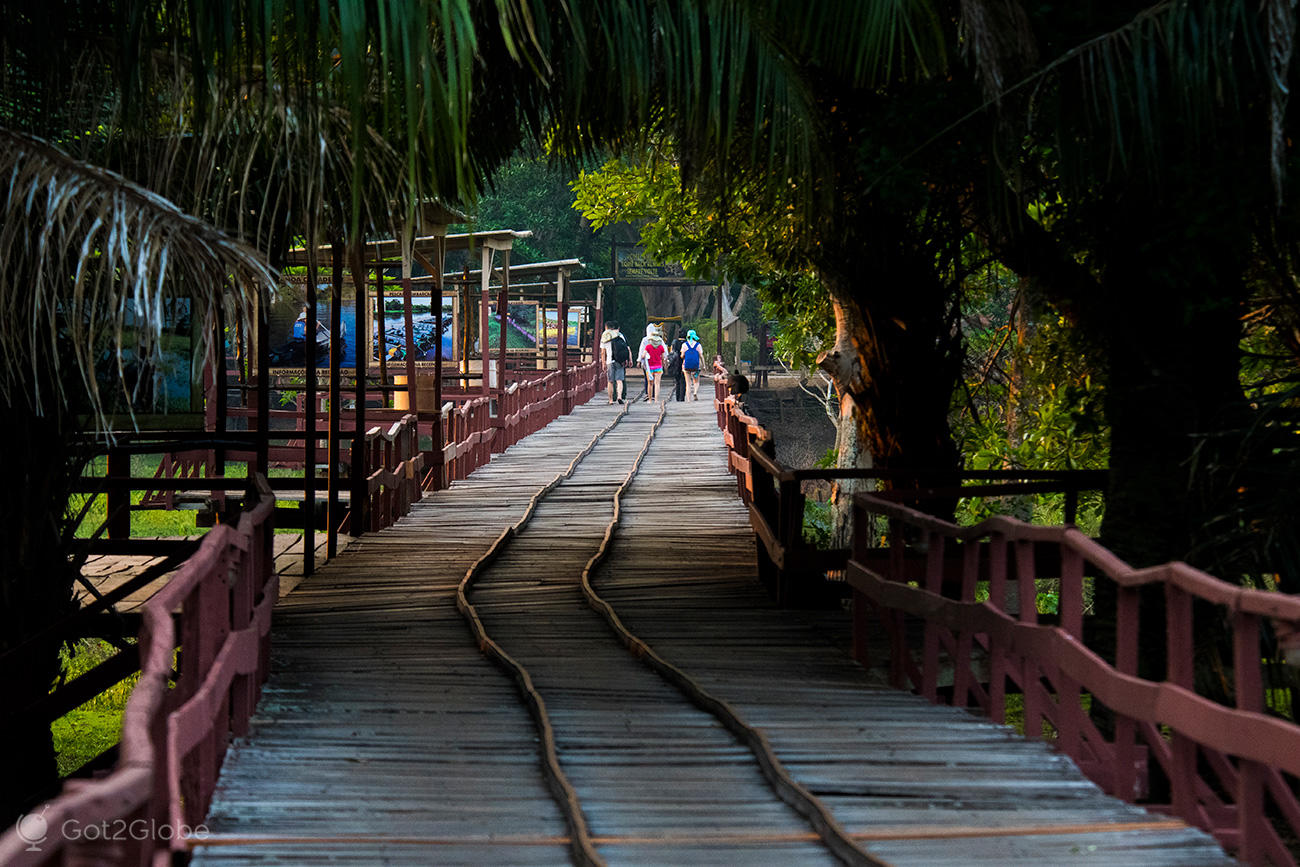
The long railway walkway of Passo do Lontra that now leads from the car park and aggravates the surroundings of the main buildings.
We took refuge from the sauna that was felt in the ventilated coolness of the dining room.
Just beside the saloon shutters, a picturesque pinga stand embellished with sunflowers welcomes newcomers. "Enjoy the Pantanal” is the label on the bottle, between seven small glasses embedded in a solid wood base.
We threw ourselves into the various delights of the Pantanal buffet. Thus, we regained strength for the late afternoon of discovery that lay ahead. Satisfied and recovered, we drank some of the cachaça, hoping that the light anesthesia would alleviate the insane heat.
We could – probably should – have a nap.
Instead, we immediately began to investigate what the ten hectares of Passo do Lontra had in store for us, always through the network of elevated walkways that served it, some suspended over the soggy, green terrain.
The Prolific Fauna Pantaneira
In the middle of the dry season, countless animals looked for fresher and more flowing water. They were concentrated along the banks of the Miranda and around the farm.
We passed capybara caravans crossing one of the local lakes and alligators camouflaged in amphibian vegetation.
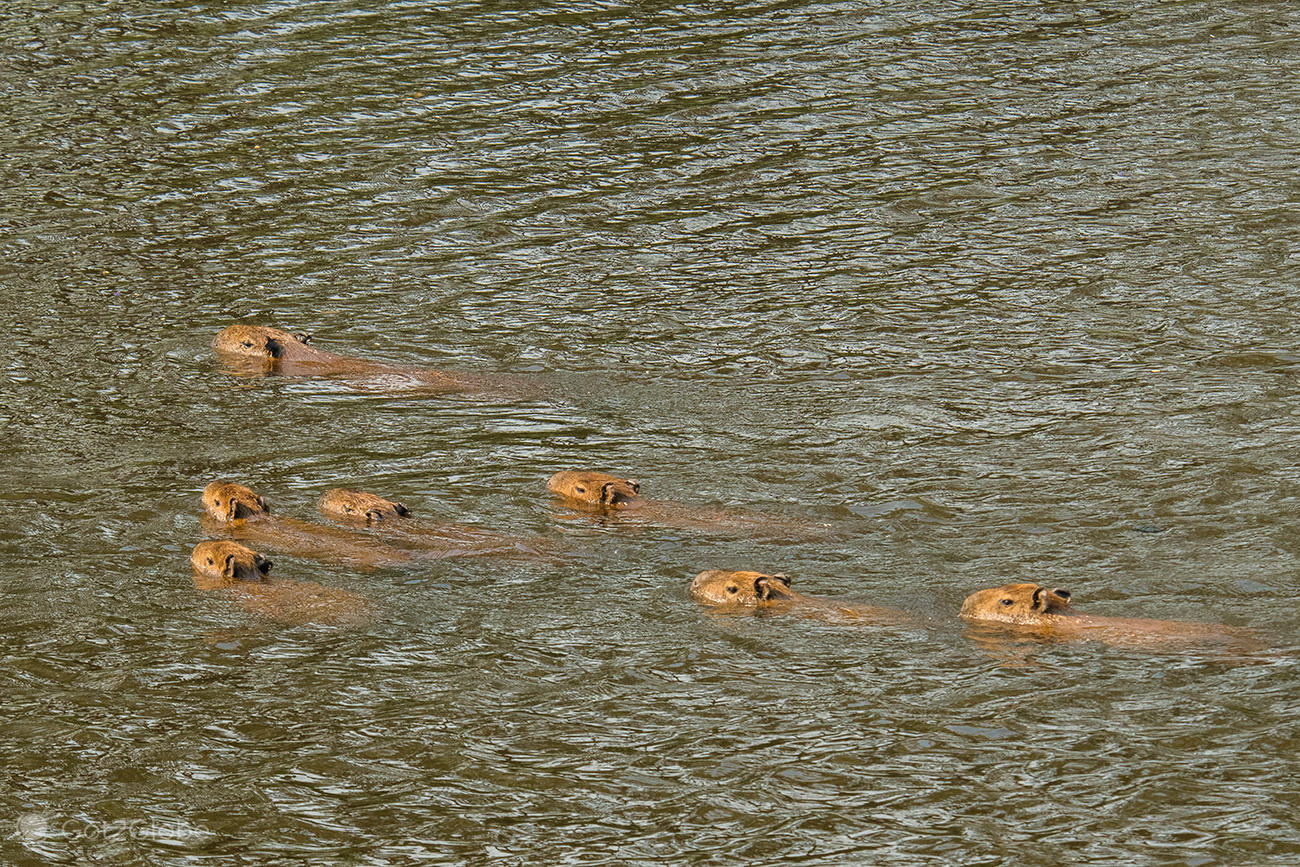
A group of capybaras cross one of the lagoons of the Passo do Lontra farm.
We find loons that fill the crop with large fish and so many other birds: fearless carcarás that do not even move away from us.
We pass by toucans, socializable blue and red macaws, tachãs and aracuãs, the latter the shrill and infallible alarm clocks of the Pantanal.
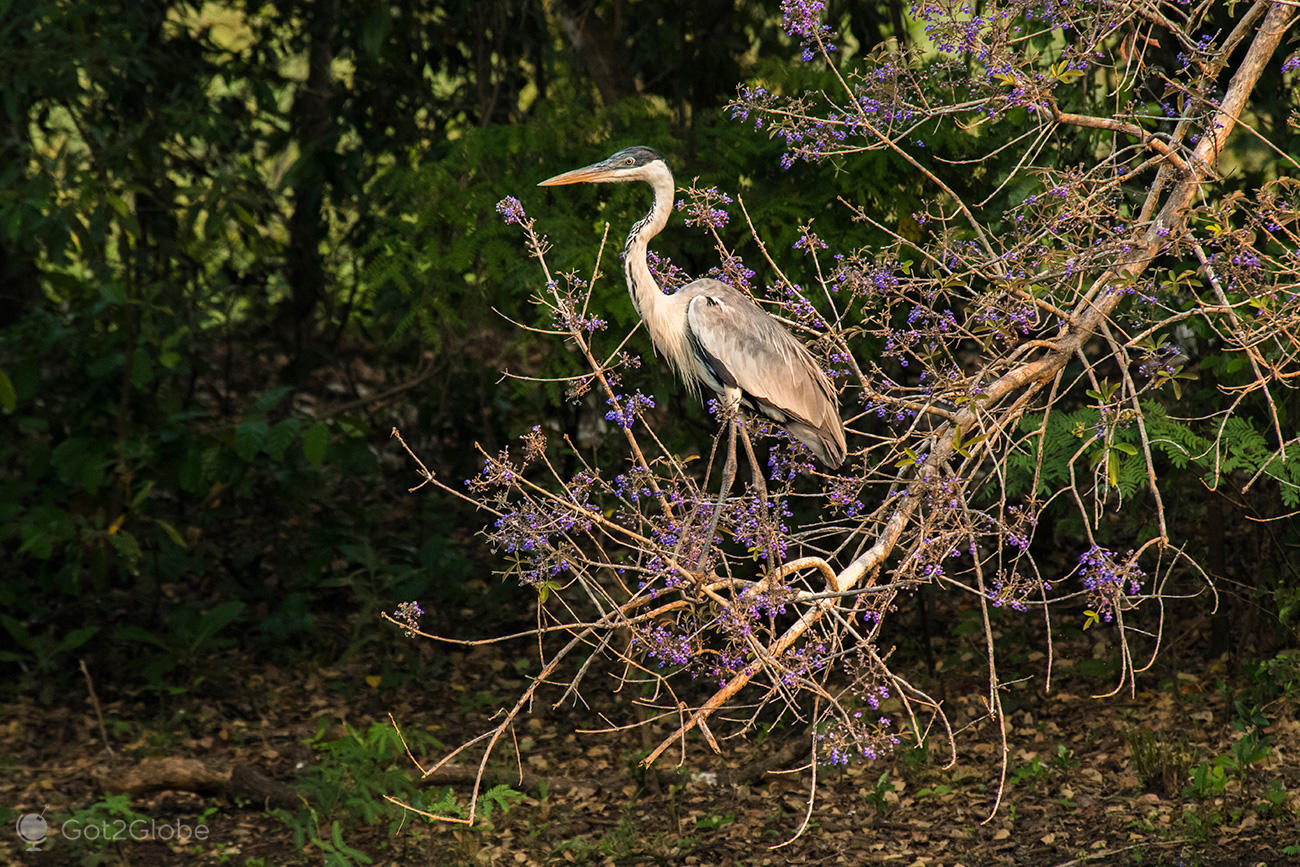
Egret balanced and detached on branches of a tree in the Pantanal.
Even elusive as they are, we detected and faced howler monkeys, all intrigued by the photographic curiosity that, without apparent explanation, we manifested for them.
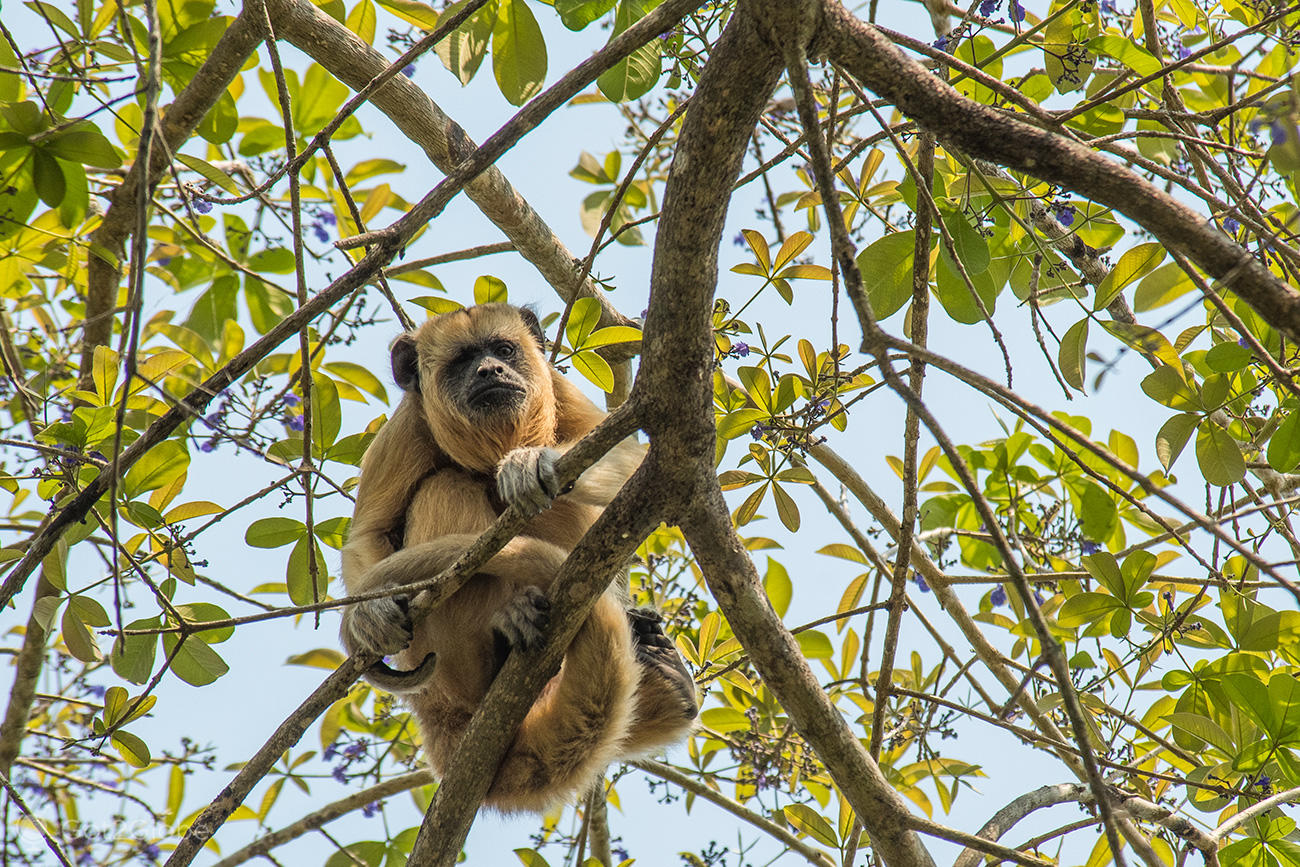
Howler monkey stalks human visitors from a treetop
Around four-thirty in the afternoon, we end this initial zoo tour. We met with Jeferson at the farm's pier. There we inaugurated the first of two fascinating river incursions: that one, in the afternoon. Another one, starting at dawn the following day.
In both, the Miranda and its banks showed us the fluvial reality, semi-humanized of that not so remote Pantanal.
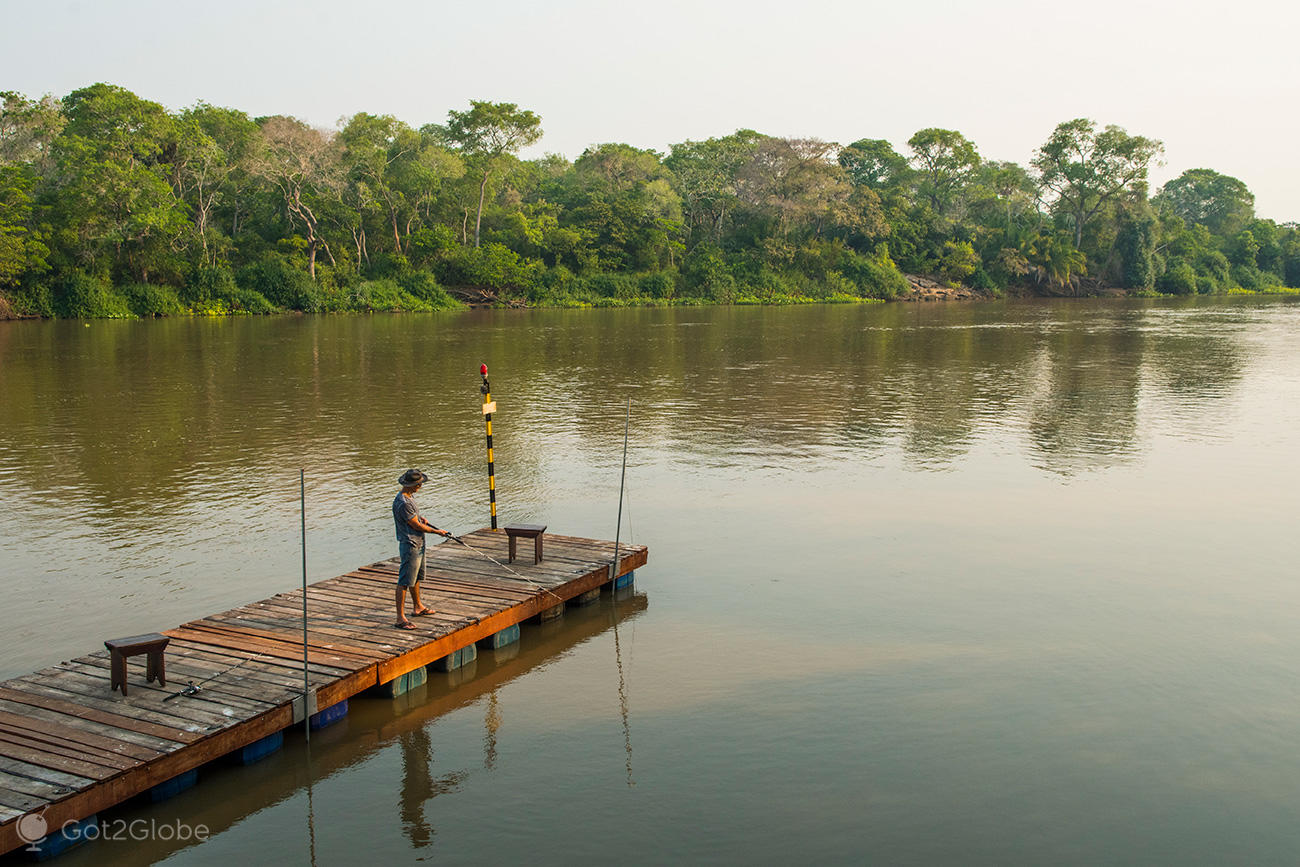
Fisherman tries his luck from a jetty on Passo do Lontra, a hotel farm on the banks of the Miranda River.
Two or three big clumsy boats roamed the river back and forth. They provided customers on board with a total fishing dynamic that only could not rival the ease and comfort of the farms.
Small boats appeared immobilized in an almost sacred way in strategic corners of the river.
More fishermen shared them, invariably determined to catch the greatest number of Pintado, Pacus, Dourado, Cacharas, Jaús, Barbados and, of course, the piranhas that the Pantanal would grant them.
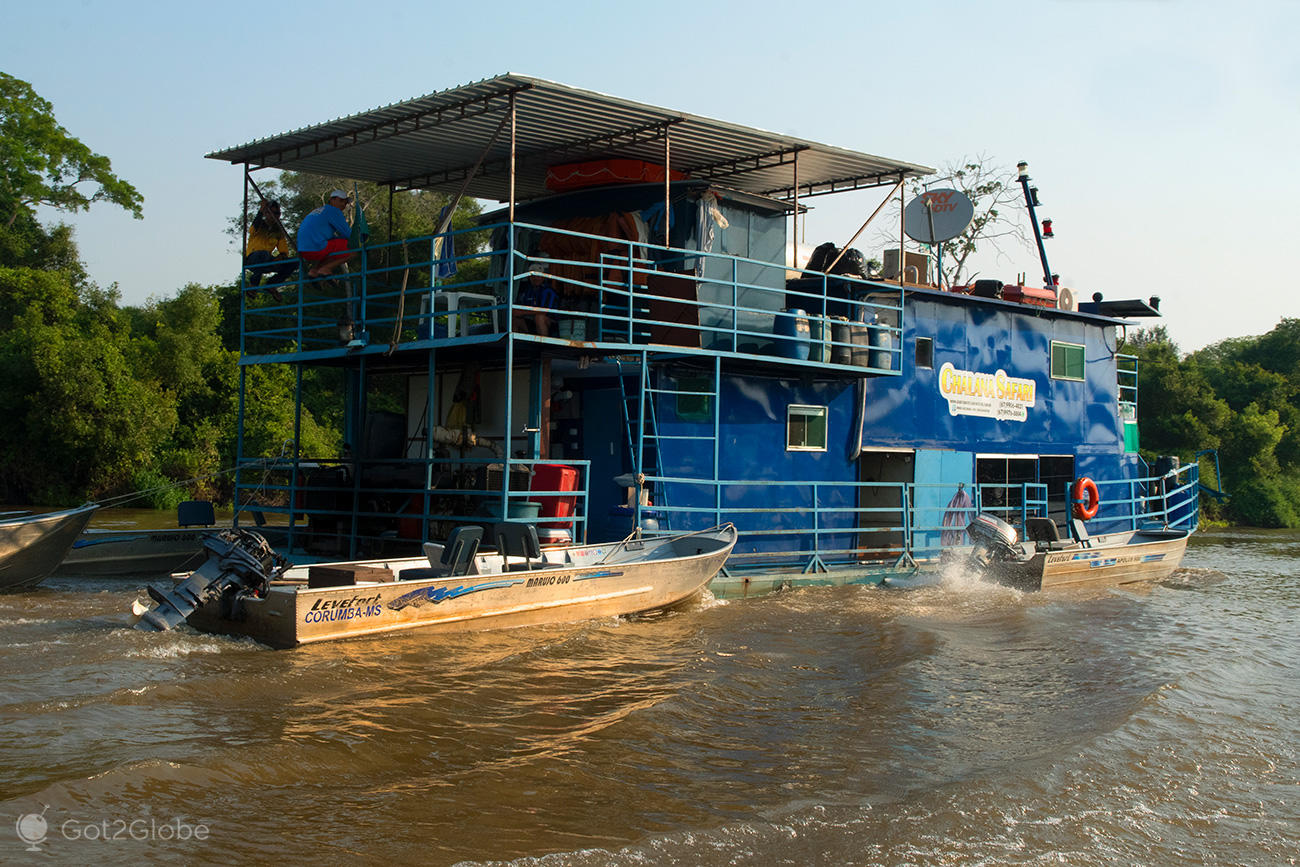
Chalana with fishermen on board runs along the Miranda River.
From the river Miranda to the Red and back to the Miranda
We snaked through the Miranda to the place where a tributary, the Red, was given to it.
We can see how it was marked by the agony of a farm that had been installed at the end of the V created by the confluence and that the power of the torrent, inflated by the rains, had eroded the banks, almost causing the collapse of the wooden buildings.
And yet, in the middle of the dry season, the shallowness of the ocher waters of the Red River prevents us from going up more than a few hundred meters.
By way of compensation, they reveal the hyperbolic nest occupied by a pair of tuiuiús, or jabirus, the huge storks of the Pantanal and the tallest of the flying birds in the Americas, only surpassed, in their wingspan, by the Andean condors.
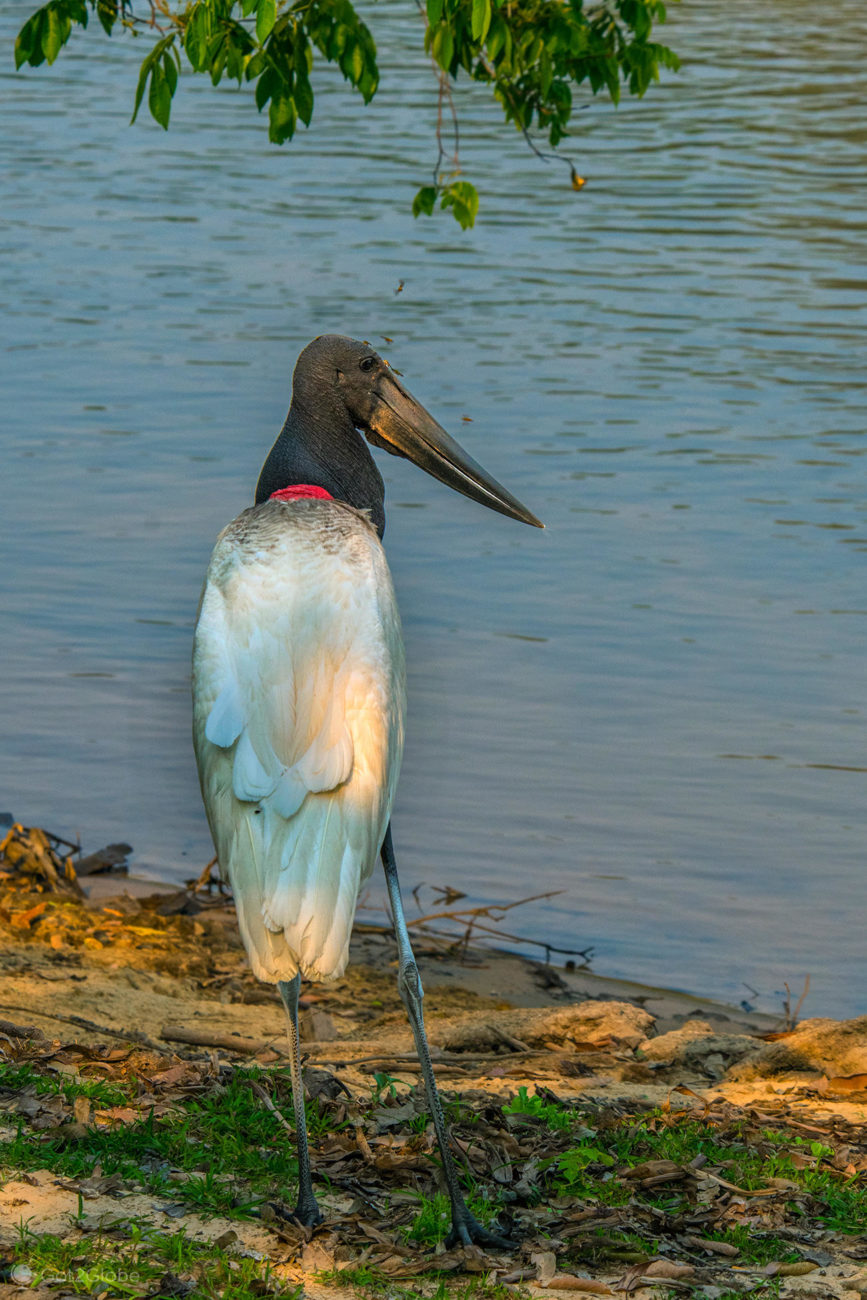
The great Tuiuiu is the largest flying bird in the Pantanal and, if you consider the vertical size instead of the wingspan, also in the Americas.
When we got ready to leave the Red, we still found a family of otters on a hunting mission.
We accompanied them on their passage to Miranda and on the long peripheral route, partly amphibious, which they undertook there until almost to Passo do Lontra.
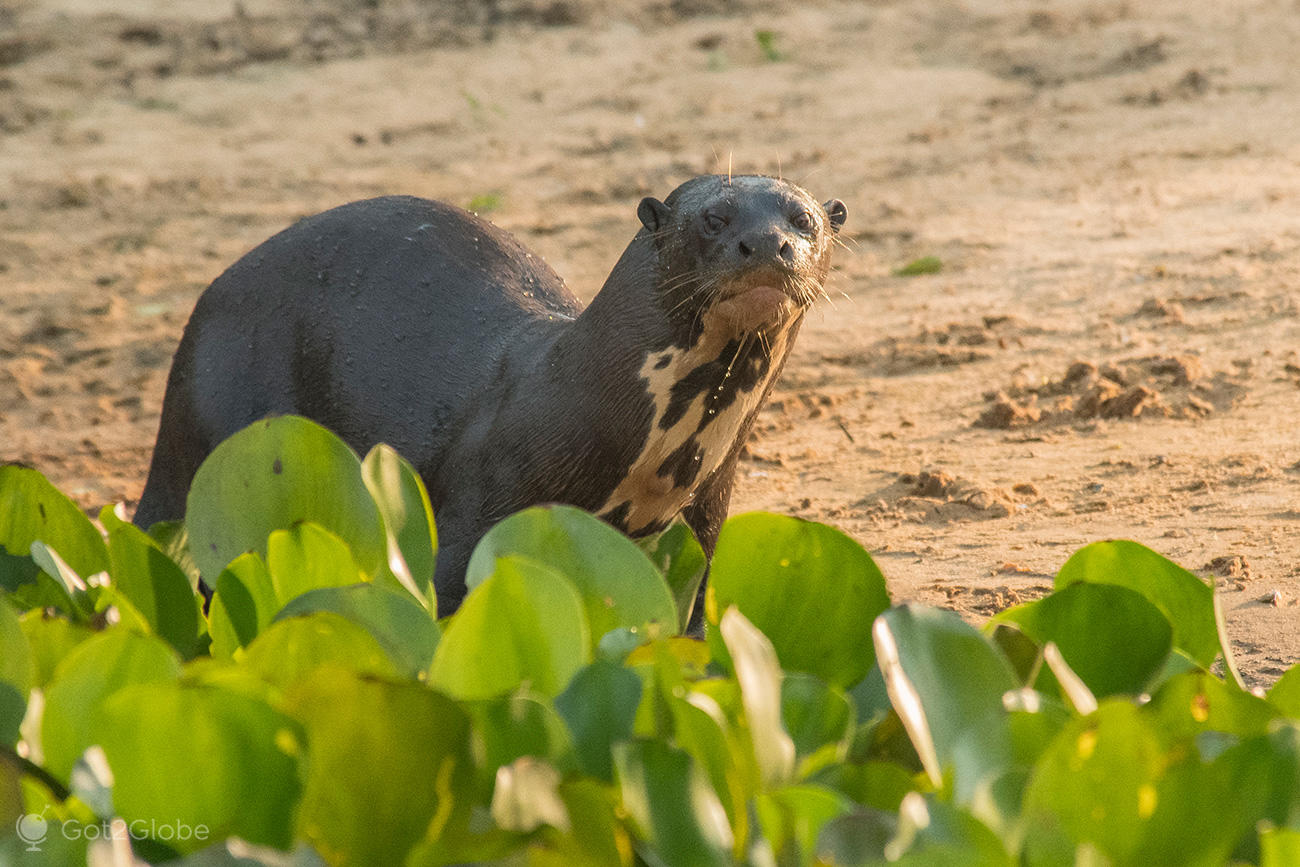
One of the otters we saw in the Red River and, subsequently, along the Miranda River.
On the second exit to Miranda, we saw the sun rise. Shyly at first, overcoming a cloak of dark celestial mist, and then displaying in a radiant pinkish-orange, his great sphere of earthly contentment.
From time to time, we saw it being torn apart by the flights of more busy birds: herons, more carcarás, gigantic Tuuiús, the Pantanal Tupolevs.
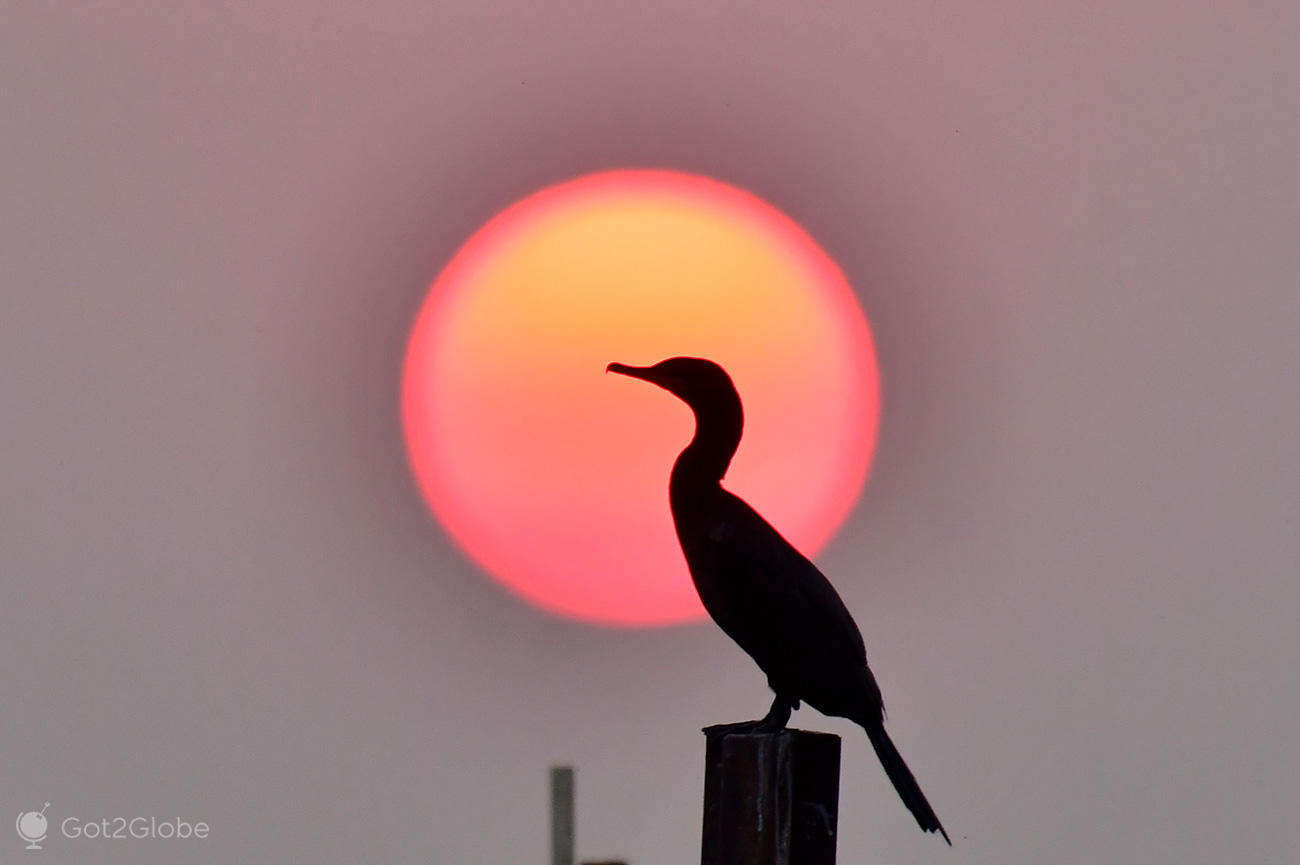
Mergulhão highlighted against the setting sun, at the convergence of the Vermelho River with the Miranda River.
That embarrassed sun soon came out of its shell. At ten in the morning the drenched Pantanal was once more soothed.
At some point in their lives, the first generation of Venturinis – João and Marilene – had left Passo do Lontra to their son Sandro to settle on another farm, located 20km to the north.
No matter how hot it was, it was time to move there too.
How to go:
TAP flies every day, directly from Lisbon to several Brazilian cities. The most convenient to get to Campo Grande and Passo do Lontra, in the Pantanal of Mato Grosso do Sul, São Paulo and Brasilia. From these cities, you can complete the trip with a Brazilian airline.
The authors would like to thank TAP and the FUNDTUR Mato Grosso do Sul the support given in the creation of this report.







